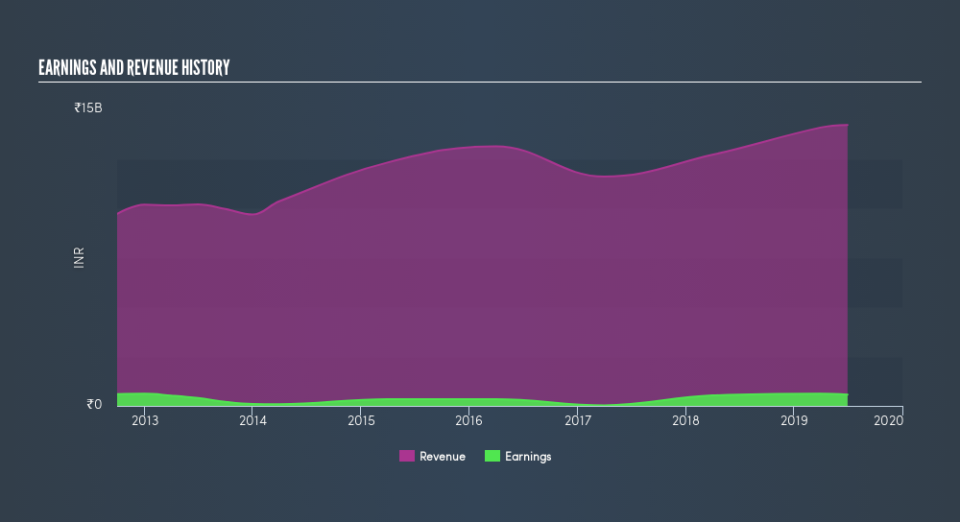Did You Manage To Avoid Everest Industries's (NSE:EVERESTIND) 37% Share Price Drop?

It's easy to match the overall market return by buying an index fund. While individual stocks can be big winners, plenty more fail to generate satisfactory returns. Unfortunately the Everest Industries Limited (NSE:EVERESTIND) share price slid 37% over twelve months. That falls noticeably short of the market return of around -10%. On the bright side, the stock is actually up 21% in the last three years. Shareholders have had an even rougher run lately, with the share price down 24% in the last 90 days. We note that the company has reported results fairly recently; and the market is hardly delighted. You can check out the latest numbers in our company report.
Check out our latest analysis for Everest Industries
In his essay The Superinvestors of Graham-and-Doddsville Warren Buffett described how share prices do not always rationally reflect the value of a business. One way to examine how market sentiment has changed over time is to look at the interaction between a company's share price and its earnings per share (EPS).
During the unfortunate twelve months during which the Everest Industries share price fell, it actually saw its earnings per share (EPS) improve by 2.8%. It's quite possible that growth expectations may have been unreasonable in the past. It seems quite likely that the market was expecting higher growth from the stock. But other metrics might shed some light on why the share price is down.
Everest Industries's revenue is actually up 8.9% over the last year. Since the fundamental metrics don't readily explain the share price drop, there might be an opportunity if the market has overreacted.
You can see how earnings and revenue have changed over time in the image below (click on the chart to see the exact values).
If you are thinking of buying or selling Everest Industries stock, you should check out this FREE detailed report on its balance sheet.
What about the Total Shareholder Return (TSR)?
We'd be remiss not to mention the difference between Everest Industries's total shareholder return (TSR) and its share price return. The TSR attempts to capture the value of dividends (as if they were reinvested) as well as any spin-offs or discounted capital raisings offered to shareholders. Everest Industries's TSR of was a loss of 36% for the year. That wasn't as bad as its share price return, because it has paid dividends.
A Different Perspective
We regret to report that Everest Industries shareholders are down 36% for the year (even including dividends). Unfortunately, that's worse than the broader market decline of 10%. Having said that, it's inevitable that some stocks will be oversold in a falling market. The key is to keep your eyes on the fundamental developments. Longer term investors wouldn't be so upset, since they would have made 6.9%, each year, over five years. It could be that the recent sell-off is an opportunity, so it may be worth checking the fundamental data for signs of a long term growth trend. If you would like to research Everest Industries in more detail then you might want to take a look at whether insiders have been buying or selling shares in the company.
If you like to buy stocks alongside management, then you might just love this free list of companies. (Hint: insiders have been buying them).
Please note, the market returns quoted in this article reflect the market weighted average returns of stocks that currently trade on IN exchanges.
We aim to bring you long-term focused research analysis driven by fundamental data. Note that our analysis may not factor in the latest price-sensitive company announcements or qualitative material.
If you spot an error that warrants correction, please contact the editor at editorial-team@simplywallst.com. This article by Simply Wall St is general in nature. It does not constitute a recommendation to buy or sell any stock, and does not take account of your objectives, or your financial situation. Simply Wall St has no position in the stocks mentioned. Thank you for reading.

